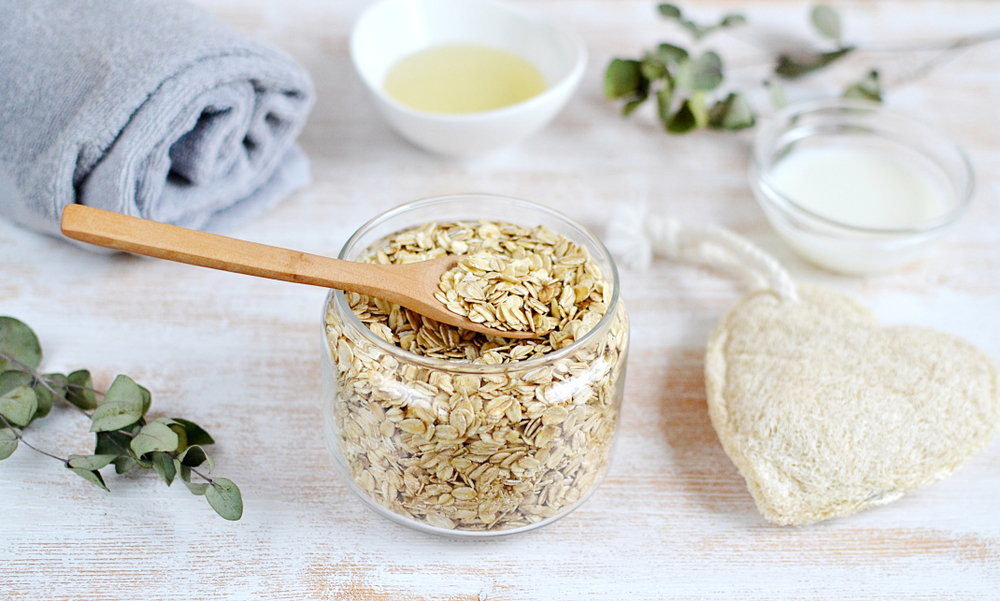Psoriasis is a chronic skin condition that can cause discomfort and affect a person’s quality of life. While medical treatments are available, some individuals seek alternative approaches to manage their psoriasis symptoms, such as home remedies. In this article, we’ll explore a range of home remedies that have proven to be affective in alleviating the symptoms of psoriasis. You can learn more about any potential home remedies that are safe and effective by searching online!
Turmeric
Extensive research has focused on the remarkable anti-inflammatory and antioxidant properties of turmeric. Surprisingly, curcumin, the active component in turmeric, may have the ability to influence gene expression.
The National Psoriasis Foundation (NPF) refers to studies which have specifically highlighted how turmeric can modify the expression of TNF cytokines. These are what may contribute to flare-ups in psoriasis and psoriatic arthritis (in certain individuals).
Apple Cider Vinegar
Another cooking ingredient, apple cider vinegar has versatile uses beyond being a mere salad dressing. According to WebMD, apply to the scalp a few times a week, either in its pure form or diluted with water, to help relieve the urge to scratch.
However, the source warns to rinse off after it has dried to prevent irritation. It’s also important to note that this method should not be attempted if the scalp is bleeding or has cracks, as the vinegar may cause a burning sensation.
Aloe Vera
Aloe vera is a useful home remedy for psoriasis due to its potential to reduce symptoms such as discoloration, scaling, itching, and inflammation. It contains beneficial compounds that have been shown to have soothing and anti-inflammatory properties, which can provide relief to individuals with psoriasis.
As recommended by the NPF, it is advised to use creams containing aloe vera concentrations of up to 0.5-percent. These creams can be applied up to three times a day for optimal results.
Oregon Grape
Oregon grape, scientifically known as Mahonia aquifolium, is an herbal remedy that shows potential in calming the immune response associated with psoriasis, explains Medical News Today. In fact, a 2005 report found tat the use of M. aquifolium cream is a safe and effective treatment for mild-to-moderate psoriasis.
Another 2018 review concluded that M. aquifolium has the ability to improve symptoms of psoriasis. As a result, it is now considered a safe and effective remedy with minimal side effects.
Capsaicin
When incorporated into creams and ointments, the National Psoriasis Foundation says that capsaicin has the ability to hinder pain-transmitting nerve endings. It may also diminish inflammation, redness, and scaling commonly linked to psoriasis, adds the source.
However, further research is necessary to fully understand its long-term advantages and safety. The National Psoriasis Foundation warns that individuals applying capsaicin ointment may experience a burning sensation.
Moisturizer
Properly moisturizing our skin plays a vital role in managing psoriasis. Moisturizers prevent skin flaking and itching, explains Healthline. Reputable organizations like the American Academy of Dermatology Association (AAD) emphasize the use of moisturizer creams and emollients as a standard therapy for psoriasis. Avoid moisturizers that use heavy fragrance, dyes, or other additives that can potentially irritate the skin.
Yoga
Yoga serves as an excellent method for reducing stress. By reducing stress levels, Everyday Health states that it may also contribute to alleviating the pain and itch associated with psoriasis. Moreover, for individuals with psoriatic arthritis, yoga has the potential to enhance their range of motion.
Oatmeal or Epsom Salt Baths
While baths can be relaxing, be mindful of their duration and temperature. Medical News Today warns that excessively long or hot ones can strip the skin of its natural oils, potentially worsening psoriasis symptoms. However, some individuals find that a warm bath with colloidal oatmeal or Epsom salts can provide soothing relief.
Research suggests that an oatmeal bath or a wet dressing can effectively reduce itching, notes the source. On the other hand, a warm bath with an appropriate bath oil can help moisturize the skin.
Tea Tree Oil
Tea tree oil, originating from Australia, has antiseptic properties. This is why people often apply it topically to the skin, explains the NPF. Research observes that certain individuals experience relief from scalp psoriasis by employing shampoos containing tea tree oil.
However, the source points out there is a lack of scientific studies confirming the efficacy of tea tree oil in treating psoriasis. Exercise caution when using tea tree oil, as some individuals may have allergies to it.
Learn More About Psoriasis Today!
Are you tired of dealing with the discomfort and visible symptoms of psoriasis? There are various remedies and treatments available that can help manage this chronic skin condition. By continuing your online research, you can discover a wide range of natural remedies, lifestyle changes, and medical treatments that may provide relief.
Explore reputable sources to learn more about psoriasis remedies and empower yourself with the knowledge to make informed decisions about your skin health.



